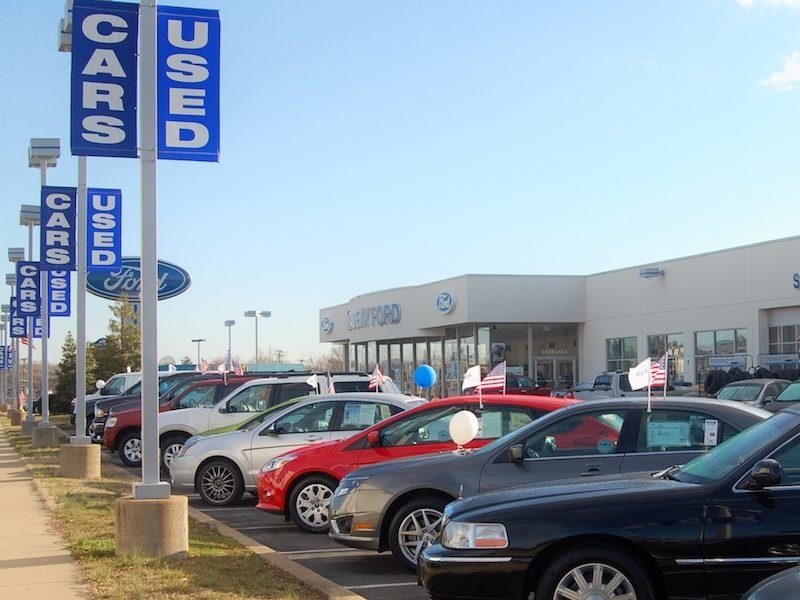
What to Expect When Getting a Car Loan for a Used Car

It might seem like there is an inordinate number of variables and restrictions that most (if not all) lenders put in place when it comes to financing used vehicles. There is actually for a very good reason for this, and we will tell you why.
 First of all, you need to consider the normal car loan process. For lenders to be able to offer competitive loan rates, they need to ensure that they are undertaking a very marginal amount of risk. They do this by using the vehicle that is being purchased as security for the loan. This is called the collateral. In a worst-case scenario in which the client will not be able to pay their loan for any reason, the lender can simply repossess the vehicle and auction it off to recover the defaulted loan. This ensures that they recoup some, if not all, of the loaned amount in one way or the other.
First of all, you need to consider the normal car loan process. For lenders to be able to offer competitive loan rates, they need to ensure that they are undertaking a very marginal amount of risk. They do this by using the vehicle that is being purchased as security for the loan. This is called the collateral. In a worst-case scenario in which the client will not be able to pay their loan for any reason, the lender can simply repossess the vehicle and auction it off to recover the defaulted loan. This ensures that they recoup some, if not all, of the loaned amount in one way or the other.
While this arrangement generally works very well with brand new cars, it is not always so with used cars. This is because vehicles lose their value very quickly, thanks to general wear and tear. So in cases of repossession, it is not always guaranteed that it will sell well at an auction, which means that they may get less money back out of it. Suffice it to say, the lender will actually have to take on a greater deal of risk when it comes to used cars, which is why they impose more restrictions and demand more requirements.
Variables that make a used car loan possible
Possibly the first and most obvious variable that lenders consider when it comes to used cars is the age of the vehicle. A majority of lenders will only provide loans for cars that are no older than five years. And although there may be some lenders who may consider offering loans for older cars, this is usually done on a case-to-case basis. In these very unique situations, factors such as the type and/or brand of the car, as well as the overall viability of the loan application and the person or company undertaking the loan, to name just a few, are considered.
Another variable that lenders usually take a close look at are the options that come with the car. This includes improvements and modifications done on the car. Such factors contribute significantly to the value of the vehicle, which can, in turn, greatly influence the loan application. Depending on the lender’s valuation, this could result in either higher or lower interest rates or even make or break a loan application.
Where to get a car loan when buying a used car
 Getting a car from a used car dealer is often the path of least resistance. Most used car dealers have their own in-house financing options, which can easily provide the used car loan that you need. However, bear in mind that a lot of these in-house lenders generally demand higher interest rates, which may not be financially feasible in the long run. It is, therefore, always a good idea to consider other lenders to make sure that you get the best possible rates for your used car loan. You may even consider a larger down payment to alleviate some of the lender’s risks while at the same time lowering your monthly amortization. Remember that there are always other options available, so do not settle for the first offer that is put on the table.
Getting a car from a used car dealer is often the path of least resistance. Most used car dealers have their own in-house financing options, which can easily provide the used car loan that you need. However, bear in mind that a lot of these in-house lenders generally demand higher interest rates, which may not be financially feasible in the long run. It is, therefore, always a good idea to consider other lenders to make sure that you get the best possible rates for your used car loan. You may even consider a larger down payment to alleviate some of the lender’s risks while at the same time lowering your monthly amortization. Remember that there are always other options available, so do not settle for the first offer that is put on the table.
Purchasing a used vehicle from a private seller may also come with its own challenges, as well. Rarely do lenders take the word of the seller alone, for obvious reasons. The best thing to do in these cases is to bring in a professional who can ensure that the used car you wish to purchase fits all of the lender’s criteria.
Undoubtedly, getting a car loan for a used car is a lot more challenging than when you’re purchasing a brand-new unit. However, it is not quite impossible to acquire. You may need to jump through a few hoops to make the used car loan and the purchase possible, but at least, the hoops (read: the options) are there to make it possible.
More inFinancial Adviser
-
Will Governor Kugler Push for More Rate Cuts as Inflation Eases?
Federal Reserve Governor Kugler supports the central bank’s recent interest rate cut and plans to advocate for more reductions if inflation...
October 18, 2024 -
Four Seasons Hotel Milano Introduces Personal Styling With Vittoria de Carlo
When it comes to fashion, Milan is unmatched, blending elegance with avant-garde trends. To uncover the heart of Milan’s fashion scene,...
October 9, 2024 -
The Most Successful Female Celebrity Brands
In today’s world, many female celebrities are not just shining in the entertainment industry but also making significant strides as entrepreneurs....
October 1, 2024 -
How to Incorporate Sustainable Outdoor Activities Into Your Travel Adventures
Opting for sustainable outdoor activities may seem challenging at first, but it’s an essential choice for preserving our environment. While integrating...
September 26, 2024 -
Here’s How You Can Get Low Interest on Loans in 2024 & Beyond
How to get a low-interest loan? Well, it is a question many Americans seek an answer to. After all, interest rates...
September 20, 2024 -
How to Buy the Perfect Men’s Belt Online
Selecting the right belt size might seem straightforward, but it can be more nuanced than simply matching it to your pants...
September 12, 2024 -
Why Joey Lawrence and Samantha Cope Parted Ways After 2 Years of Marriage
In a surprising turn of events, Joey Lawrence’s divorce from Samantha Cope has become a topic of widespread discussion. The couple,...
September 2, 2024 -
Must-Visit Tourist Attractions in Brussels
Exploring Fairytale Cities (Bruges and Ghent) One of the best things to do in Brussels is to take a day trip...
August 28, 2024 -
What Is a Write Off and How Companies Use Them?
Understanding the Nuances of Write-Offs Understanding the nuances of what is a write-off is essential for businesses. While the basic concept...
August 23, 2024














You must be logged in to post a comment Login